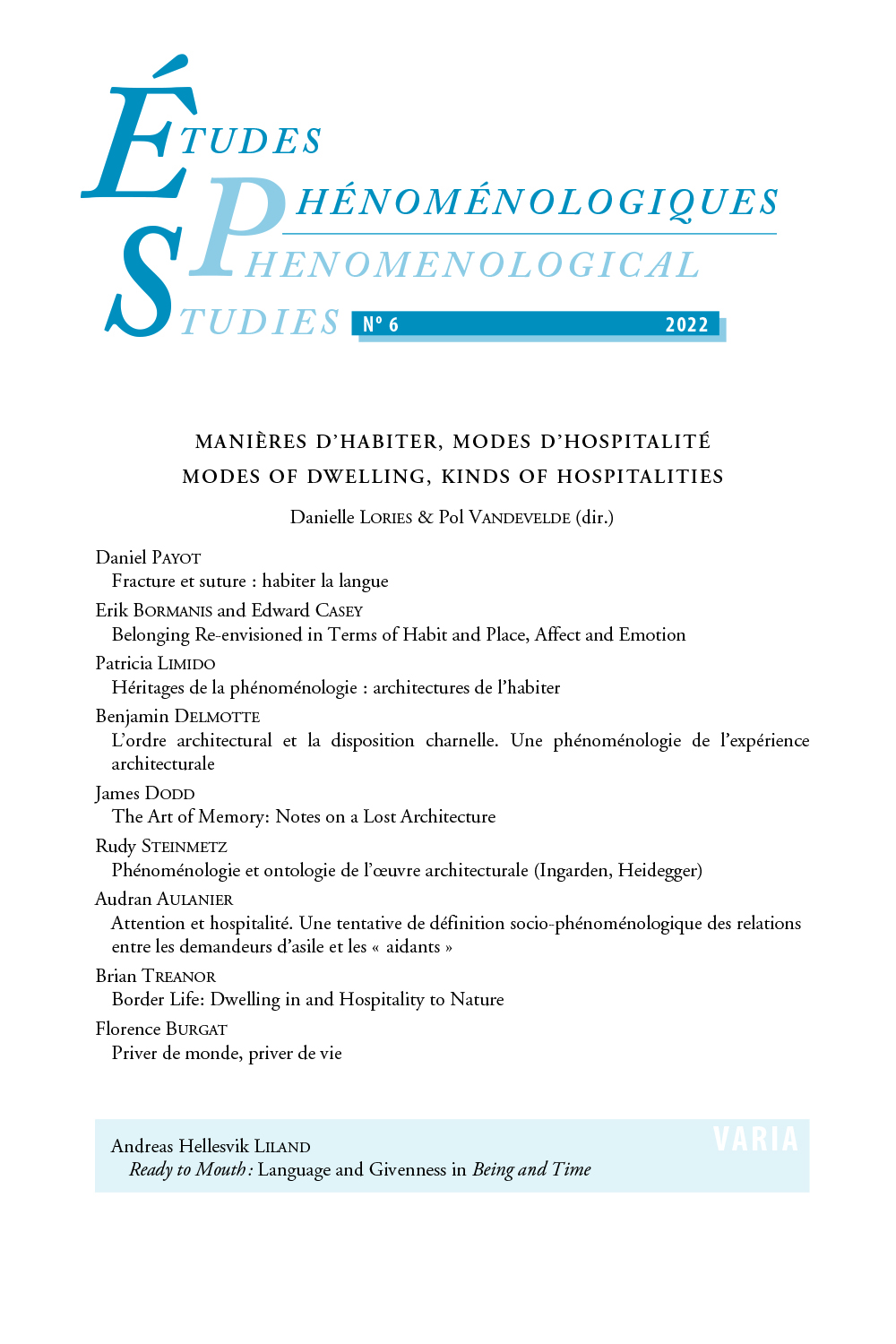 previous article in this issue previous article in this issue | next article in this issue  |

Preview first page |
Document Details : Title: The Ethical Potential of Music and Democracies in Crisis Author(s): BARBER, Michael Journal: Etudes phénoménologiques - Phenomenological Studies Volume: 8 Date: 2024 Pages: 103-126 DOI: 10.2143/EPH.8.0.3292514 Abstract : Current crises in democracy spring from tendencies not to listen to or to discredit co-citizens. Two philosophers in the phenomenological tradition developed visions of intersubjectivity that counter these tendencies. Emmanuel Levinas describes the experience of being summoned to asymmetrical, ethical responsibility for another, and this experience contrasts with the 'serenity' of knowing, generates asymmetries, and resists facile integration within philosophy. Alfred Schutz depicts the social relations, within which the non-conceptual meaning of music is communicated among audiences, composers, and performers, as a 'mutual tuning-in' that illuminates other forms of social relations. Schutz demonstrates how the other on a pre-reflective level, through passive synthetic linkages, interrupts us and evokes a 'Thou-orientation', much as musical mimesis pre-reflectively elicits proprioceptive participation. Schutz also identifies fascinating asymmetries: music’s extended focus on another’s meaning, better access to the other than oneself, and exposure to the polythetic unfolding of another’s time that eludes monothetic typification. Schutz’s provocative epistemic accounts of what is known, or better what is unknown, in social relationships, highlights interpersonal 'responsiveness' but lacks the urgency of Levinasian 'responsibility'. Ethics as an optics discerns how responsiveness is already embryonically ethical; but both responsiveness and responsibility equip one to correct the misunderstandings underlying democratic crises. |
|


